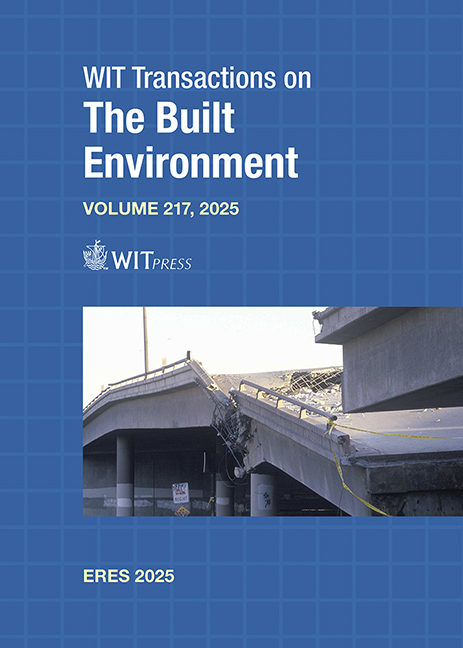ENHANCING SEISMIC STRUCTURAL DAMAGE ASSESSMENT OF LOW-TO-MEDIUM RISE REINFORCED CONCRETE FRAMED BUILDINGS USING ARTIFICIAL INTELLIGENCE
Price
Free (open access)
Transaction
Volume
217
Pages
12
Page Range
29 - 40
Published
2025
Paper DOI
10.2495/ERES250031
Copyright
Author(s)
KAVEESH GUWANINDU ABEYSURIYA, MIHAELA ANCA CIUPALA, SEYED ALI GHORASHI, ALPER ILKI
Abstract
This paper has introduced an artificial intelligence (AI) integrated method for automating the assessment of seismic structural damage in reinforced concrete (RC) buildings, curtailing the need for conventional, time-intensive on-site visual inspections. A deep learning-based damage assessment model has been developed using pre-trained convolutional neural networks to identify damageindicators, such as cracks, spalling and crushing from images, and subsequently to predict two crucial local element structural failure modes in low-to-medium rise RC framed buildings: shear and flexural failure. The incorporation of local element structural failure modes within this damage assessment model has been aligned with current damage assessment guidelines, facilitating a transition from simply assessing the level of structural damage to providing more actionable insights for structural integrity evaluations and retrofitting decisions. To develop a high-quality model and tackle key challenges in adopting AI in earthquake/structural engineering domain, particularly the scarcity and imbalance of image datasets, this paper has employed transfer learning, data augmentation and synthetic data generation techniques. These techniques have significantly improved model performance and generalisability, ensuring robust and reliable predictions. The proposed model has achieved a uniform score of 0.91 (91%) in accuracy, precision, recall and F1-score without overfitting, showcasing its reliability for real-world implementation. This research marks a significant step forward in AIintegrated seismic structural damage assessment, providing a rapid, accurate, and scalable method to enhance structural integrity evaluations and urban resilience.
Keywords
seismic damage, reinforced concrete buildings, damage assessment, artificial intelligence, convolutional neural networks, data augmentation, synthetic data generation, transfer learning





